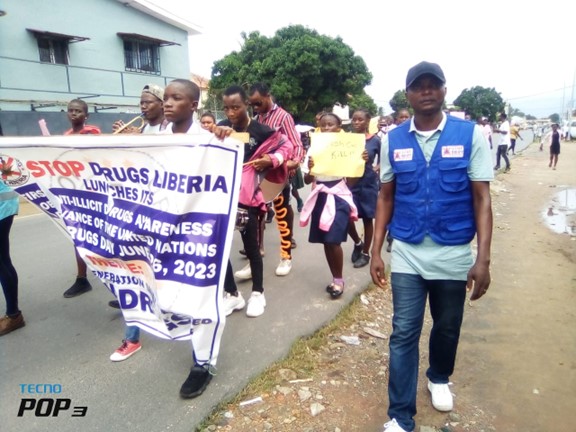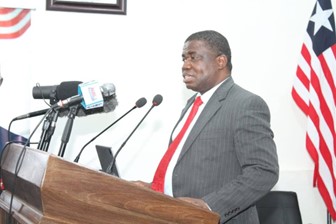ArcelorMittal Liberia signed her first Mineral Development Agreement (MDA) with the government of Liberia in 2005. The agreement allowed the company to begin mining operations in Yekepa, Nimba County, and Buchanan, Grand Bassa County, as a concessional area.
It was then renegotiated and amended in 2006 to carry stringent conditions regarding sustainable development and economic, social and environmental investment.
The conditions set forth in the agreement was that, while foreign companies can generate a profit from their investment in the extraction of Liberia’s resources, the country and its citizens benefit as well.
For this, ArcelorMittal agreed to contribute $3 million a year to the Social Development Fund for Nimba, Bong and Grand Bassa counties which, over the 25-year expected life spine of the agreement, will total $75 million to drive community development projects that will uplift and improve the lives of local people.
War had just ended in Liberia, and between 2005 and 2006 the country was in complete disaster, with nearly every infrastructure destroyed or badly damaged or beyond repair.
To set up a mine in Yekepa, AML needed to identify a suitable means of transport to move logistics between the port of Buchanan and Yekepa, and as well transport ore for shipment.
But the major railway between Buchanan and the mines in Yekepa was damaged and could not in any way be used for transportation of ore by train.
To this end, AML and invested more than $500 million to reconstruct the railway and make it operable to move iron ore and logistics between Bassa and Nimba.
When the CDC government was inaugurated, sources say, it contested this amount but later verified through an audit that this amount was committed by the company to make the railway once more operational.
At this point, the government needed additional companies to use the rail infrastructure so that they could pay additional taxes and royalties to Liberia.
In negotiations that led to the finalization of ArcelorMittal’s 3rd mineral development agreement in late 2021, AML agreed that it supports the idea of other companies using the railway.
As stated in the 3rd MDA, the company agreed for what all the parties called “multi-user arrangement”, by which the government will manage the railway and receive proceeds directly while AML plays only an operator role.
As rail operator, AML’s only responsibility would have been typically working with the government to monitor the rail system and communicate with other users appropriately for free and safe flow of traffic and make quick decisions in emergency situations.
Investigation established that money generated from the use of the rail, according to the MDA, would not go to ArcelorMittal; instead, the government would directly receive this funding.
“AML proposed to perform this role given that, during the negotiations, the need for more technical training of Liberians in this area—if the government was to be left with the exclusive responsibility of being the operator could not be overemphasized,” a source said.
“It would make sense to everyone that the rail industry is becoming increasingly technical, which means that rail operators need to be well-trained in a variety of areas in which ArcelorMittal already has vast experience and capacity.
“Technology is advancing daily, and the rail industry becomes more complex. We don’t have the trained technicians to serve as rail operators,” the source continued. “For this, AML was willing to provide the operator role at no cost to the government and demonstrate strong understanding of both the technical aspects of the system as well as the business side of things.”
Even in the current phase 2 expansion project, which includes the construction of high-tech ore concentrator in Yekepa, AML is making additional investment in the tone of about $200 million to expand the capacity of the railway for better use, to the benefit of all other future companies given the right to use the infrastructure.







